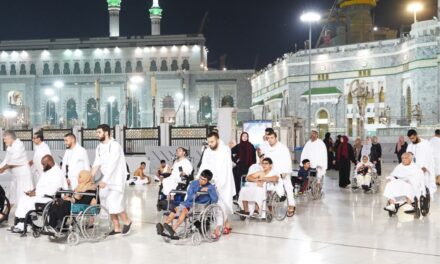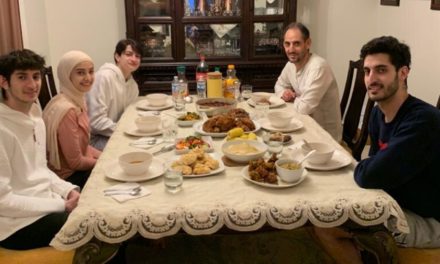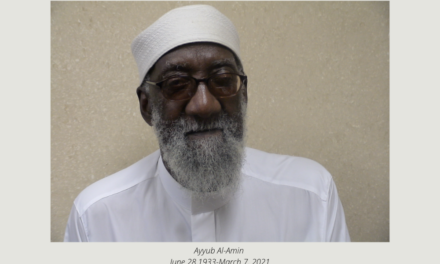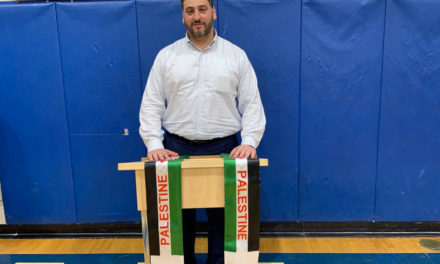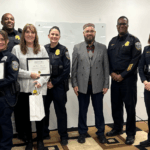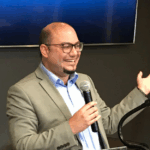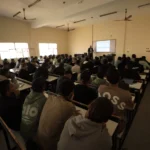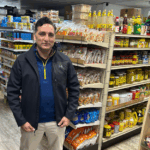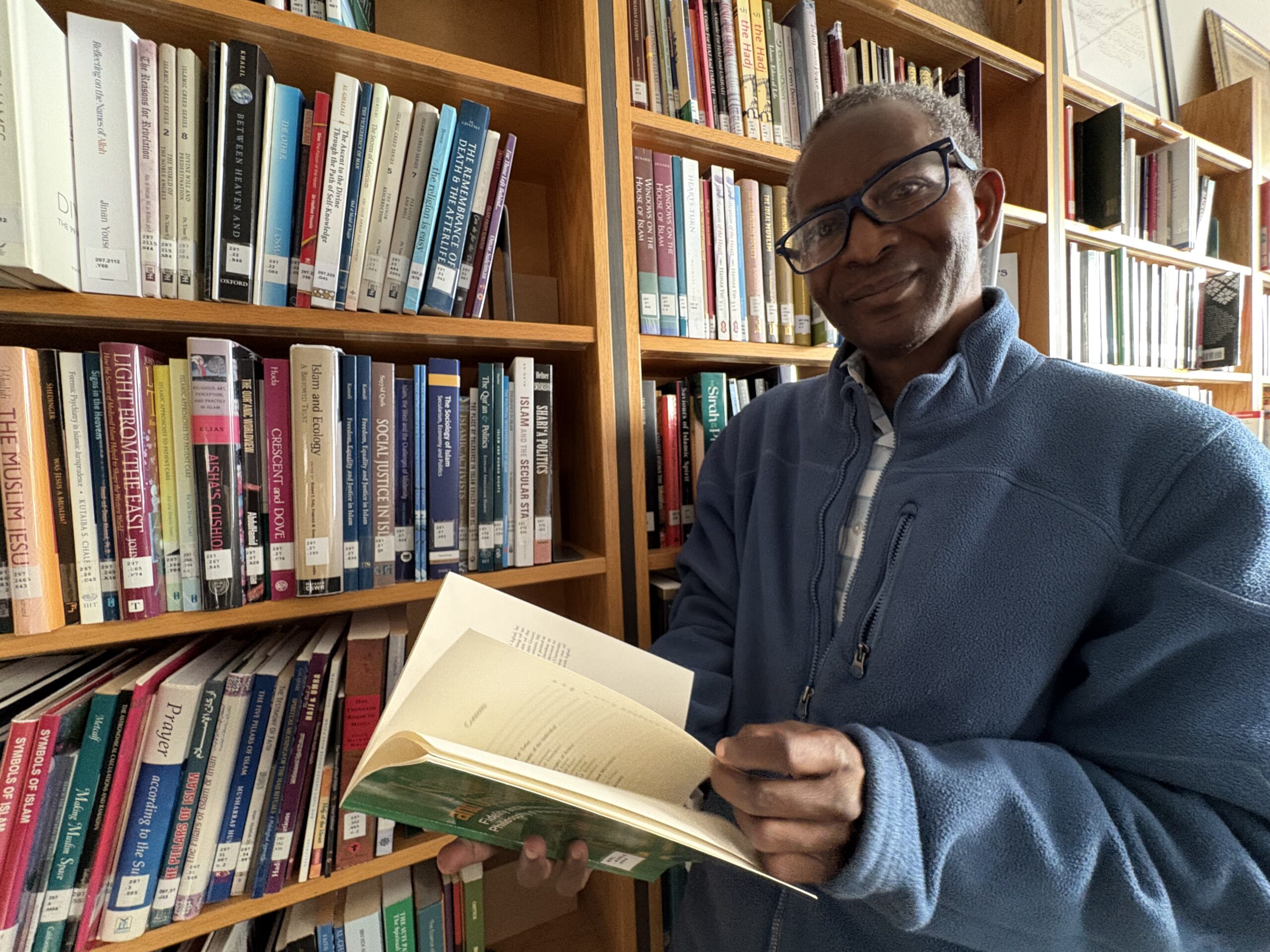
Photos by Cherrie Hanson
Ndiaye’s experience with ESL students demonstrated that they value a teacher they trust, who offers emotional support and that this meaningful relationship is crucial to their confidence and success.
When he realized that he was spending nearly as much time helping people in the community with language skills and resources than he was at his actual job, Bocar Ndiaye, Ph.D., took it as a sign to make a career change. And he couldn’t have found a better calling.
Ndiaye, who is from Dakar, Senegal, is an English as a Second Language (ESL) Instructor at Milwaukee Area Technical College (MATC) in the General Education and Academic & Career Pathway. With his love of learning and sharing knowledge, it’s not surprising that teaching is Ndiaye’s passion.
“I was so involved in the community, especially with people from West Africa. I was always directing people to where they could learn English, translating for them and just helping them in their personal life. I was doing that more than my regular job, so I applied at Alverno [College] to study adult education and organizational development.”
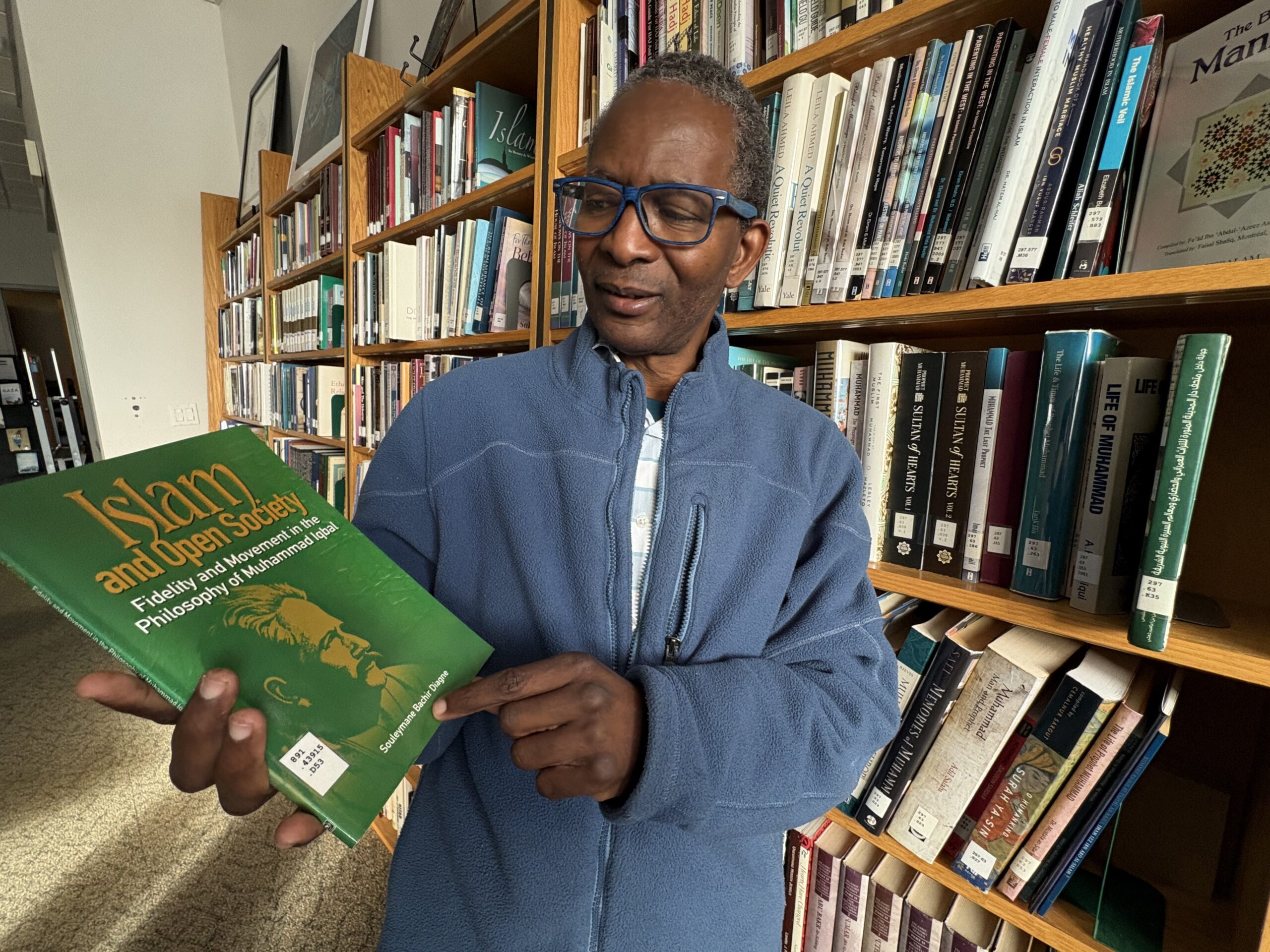
Ndiaye’s phliosophy is “Absorb as much knowledge as you can and make it your own, but don’t keep it. You must share it. After all, the best way to know that you’ve mastered something is to talk about it.”
Ndiaye, who has a master’s degree in English as a Foreign Language from the University of Dakar in Senegal, studied and taught outdoor education at George Williams College in Williams Bay, Wisconsin, which focused on teaching students about the environment. After working with the Denis Sullivan schooner marine education program for several years, he earned his master’s degree in adult education at Alverno, a school he selected because of its renowned education program and holistic approach to education. Ndiaye then got his doctorate at Alverno in Teaching and Learning in Higher Education. The focus of his dissertation provides a glimpse into his educational philosophy.
“I decided to get a Ph.D. because I wanted to research something that I could put out there that would serve as a foundation to share my experience, my knowledge and my findings,” Ndiaye said. Most of all, he wanted to spotlight the impact that humanity—trust, support and inclusivity—has on ESL students.
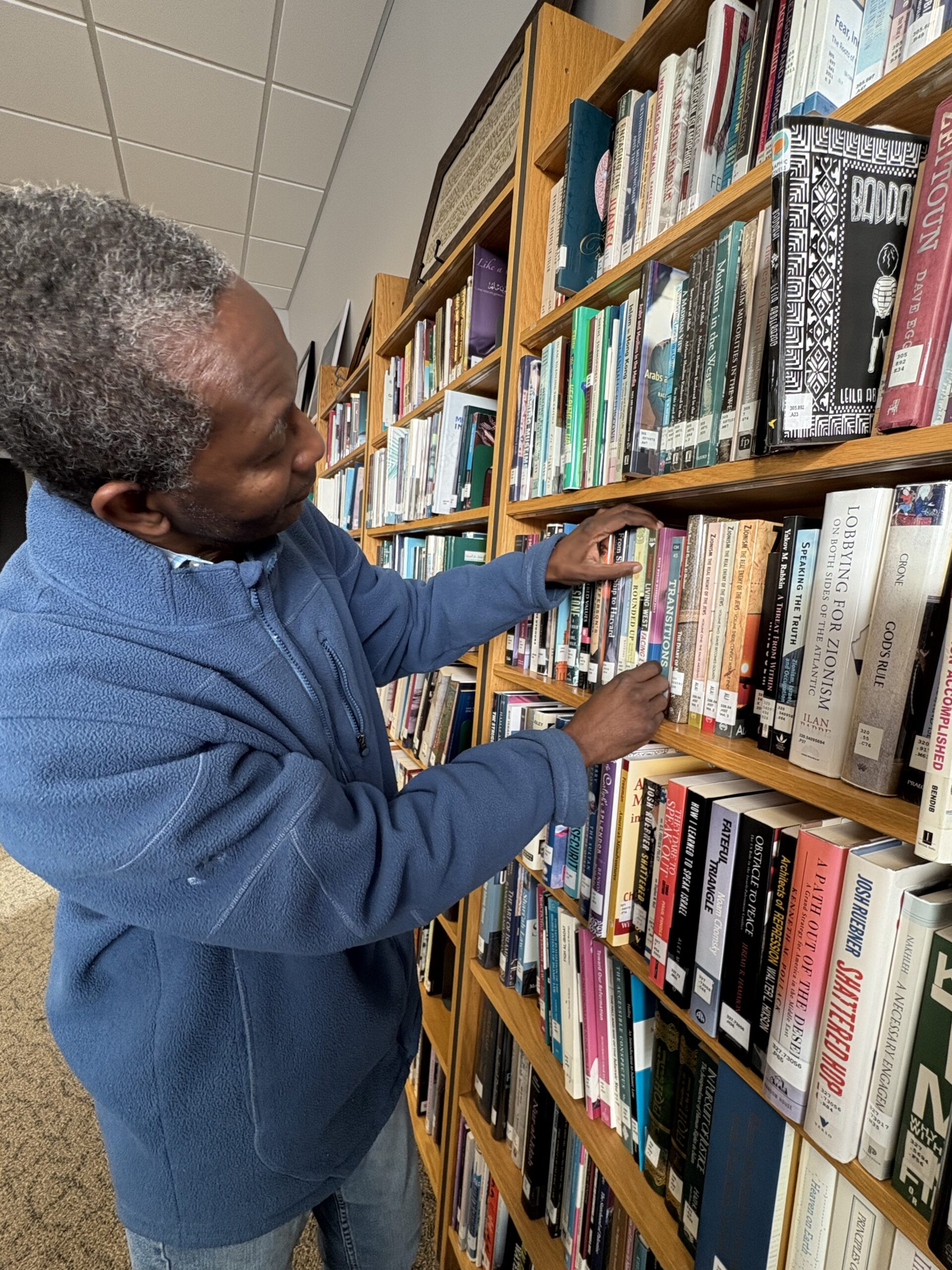
Ndiaye visits the Islamic Resource Center’s (IRC) lending library often. He considers it a gem, giving access to very specific, very old, pure and highly intelligent knowledge not found in general library’s circulation.
In his research on “Fostering Trusting and Meaningful Relationship With ESL Students in a Two-Year Higher Education Institution,” Ndiaye’s findings showed that students value a teacher they trust and who offers emotional support. In other words, a meaningful relationship is crucial to the student’s confidence and consequently, their success.
“I let my research subjects use their own voices to tell me what they see and what they feel. The most common response was about trust and reliability. It always went back to how the teacher relates to them, that they value who they are and where they are from— recognizing the student’s cultural background and fostering inclusion. People are comfortable when they are acknowledged not for what they know but for who they are. It’s about seeing everything through the aspect of humanity.”
That holistic approach and uplifting people who are often marginalized is a common philosophical thread that weaves throughout Ndiaye’s teaching career and his life in general. He said he could share numerous success stories, but one person in particular who flourished under his tutelage was Mahmoud (not his real name), a high school student who was struggling academically and socially. Ndiaye met with the young man a couple times a week to help with his language skills and so much more.
“I could tell he was very smart but what was missing was a cultural connection. The problem was not the curriculum, but that he felt culturally disconnected. Once he became comfortable navigating the system here, once he gained confidence and learned the language, he started to get friends; he flourished. Once you break that barrier, the academic side follows.”
Mahmoud is currently attending Milwaukee School of Engineering (MSOE) on a full scholarship.
Lifelong learner encourages people to never stop learning
With an insatiable curiosity and a devotion to lifelong learning, Ndiaye is a voracious reader who spends a lot of time at the Islamic Resource Center’s (IRC) lending library at the Muslim Women’s Coalition building.
“This library is small, but it is a gem,” he said, gesturing to the IRC bookshelves. “I think we are living in a stage of democratization of knowledge. Everyone has access to knowledge through technology. But access to very specific, very old, pure and highly intelligent knowledge is something you don’t see in general circulation. That is what I find here.”
Ndiaye notes that the knowledge he soaks up is not his to keep.
“Absorb as much knowledge as you can and make it your own, but don’t keep it. You must share it. After all, the best way to know that you’ve mastered something is to talk about it,” Ndiaye said, adding that life offers so many teachable moments.
“I’m not just talking about time in class. I’m always looking for teachable moments; they are available everywhere. You need to learn to look for them and pick up those moments. It’s all about utilizing your resources, acquiring knowledge and building on it.”
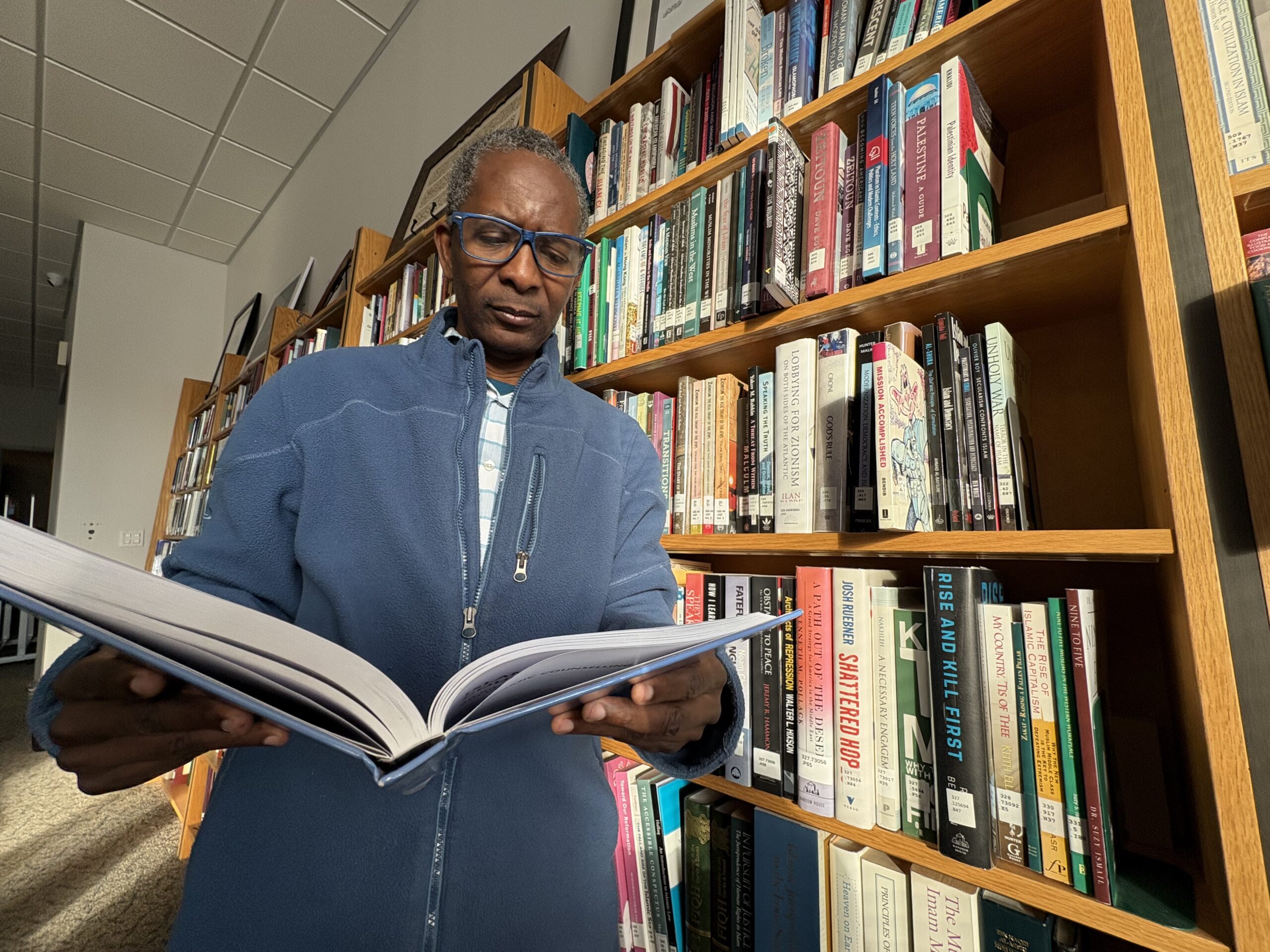
He encourages people to be lifelong learners.
“I want to tell people, never stop learning. But remember, knowledge is like water. If you drink it, it sustains you. If you put yourself in it, you can drown.”
He explained that without thoughtful application and balance, an excess of information can be misused or lead to confusion or overwhelm. “You must be purposeful,” he said, sharing another of his many favorite quotes: “Science without conscience is but the ruin of the soul.”
More than simply sharing what he knows, Ndiaye said it’s important to share who he is.
“I feel like I have a mission. I talk to people, share ideas, have discussions, play music together. I discovered that I have something that will serve people. And that’s not necessarily telling them what I know but showing them that this is who I am.”
That’s what creates trust and builds connections, he said.
“My advisor said that oftentimes ESL students feel that they don’t have a voice. I said, ‘I’m going to give my students a voice.’ That’s why I chose to focus on the person rather than academics. The more comfortable students feel, the more they participate, the more they contribute and the better they perform.”
Ndiaye said his father, a retired a journalist, was a big influence in his life.
“My father really inspired me. He has seen the world. He has seen people. He sat down with world leaders. He told me, ‘Whatever you do, do it well. And always be yourself.’ He taught me that no matter what people say, you should always be yourself.”
A talented musician who plays percussion, guitar, piano and sings, Ndiaye incorporates music in his classes and in his role as a MATC faculty development coach for the Center for Teaching Excellence.
“I use music in teacher workshops and in my classes. I do a lot of outreach and have played with many musical groups and bands. I do storytelling and travel to play music and have often played for special causes,” said Ndiaye, who is married to Ndeye Fatour Diop. He often plays music with his three children: two boys and a girl, who he describes as highly motivated, bookworms and musicians.
“Everyone picks up their instrument, and we play.”
